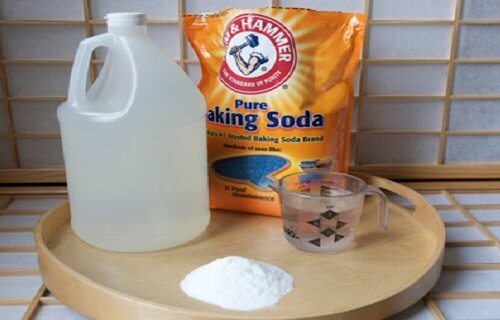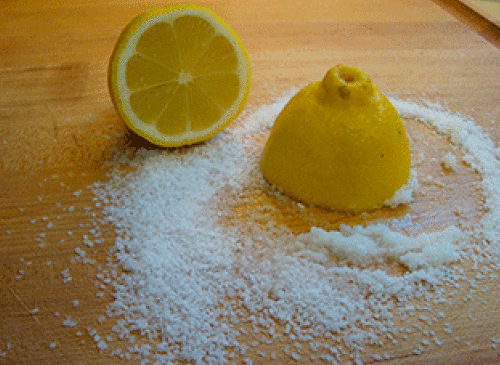How to Easily Clean Drains Without Chemicals

Indeed, finding out that your bathroom or kitchen sink is clogged is very annoying. It’s very common and not only does it give off foul odors, but it’s also a pain to clean up. Did you know there are ways to clean drains without chemicals?
Today, there are many effective products that help unclog drains quickly. Still, these same products are often not the best option for the environment. What’s more, their chemicals and other toxic substances can even affect the health of the person using them as well. Find out more about how you can clean drains without chemicals.
Since chemicals aren’t the best option to use for cleaning your drains, try more healthy and effective options. In today’s article, we’ll share some of the best tips and natural products you can use to unclog and clean drains without chemicals.
White wine vinegar, baking soda, and salt

Keeping your drains clean on a regular basis can prevent future damage and blockages. Our first natural example will keep your drains clean and prevent odors.
How should you do it?
Firstly, make sure the sink is drained of all water. Then, add your ingredients to the drain in the following order:
- 1 cup of baking soda
- A cup of salt
- 1 cup of white vinegar, preferably hot
- Let them sit for 10 minutes before rinsing with boiling water.
This is a perfect solution for removing grease and fatty residues that build up in your drain.
Salt, vinegar, and borax
This is another simple cleaner that guarantees your drains will be cleared of grease, food residues, and anything else that could clog them.
How should you do it?
- ¼ cup of salt with
- Half a cup of white vinegar
- ¼ cup of borax
Firstly, mix the three ingredients. Then, pour the mixture down your drain, followed by boiling water. You can improve your results by boiling a pot of hot water with plenty of salt. Then, pour it down the drain after pouring the mixture of salt, borax, and vinegar.
Discover: 8 Ways to Use Borax at Home
Baking soda, salt, and lemon juice

Learn more: 12 Ways to Clean Your Home with Baking Soda
How should you do it?
Mix equal parts salt and baking soda. Pour the mix down your drain and add a lot of lemon juice. Follow this with a good amount of boiling water.
Salt to clean drains
A simple trick for keeping your drains clean is to mix salt with hot water.
How should you do it?
Firstly, heat up a cup of water and add three tablespoons of salt. Then, pour this mixture down the drain and let it sit overnight.
Keeping your drains from clogging
- The best way to keep drains clear is to prevent any food residues, hair, and other substances from going down them in the first place. Therefore, use a drain catcher on all of your drains in the house. This will keep things from causing a blockage over time.
- Never pour used cooking oil or grease down the drain. Although they’re usually in liquid form when you’re doing the dishes, they solidify and block your drains and pipes. It’s always best to pour them into a jar or old can and let them solidify before throwing them away.
- Still, it’s always a good idea to clean your drains on a regular basis. Use one of the solutions from this article to keep them clear and prevent future clogs and foul odors.
All cited sources were thoroughly reviewed by our team to ensure their quality, reliability, currency, and validity. The bibliography of this article was considered reliable and of academic or scientific accuracy.
- European Agency for Safety and Health at Work. (2009). The occupational safety and health of cleaning workers. Literature Review. https://doi.org/10.2802/21855
- Nazaroff, W. W., & Weschler, C. J. (2004). Cleaning products and air fresheners: Exposure to primary and secondary air pollutants. Atmospheric Environment. https://doi.org/10.1016/j.atmosenv.2004.02.040
This text is provided for informational purposes only and does not replace consultation with a professional. If in doubt, consult your specialist.








